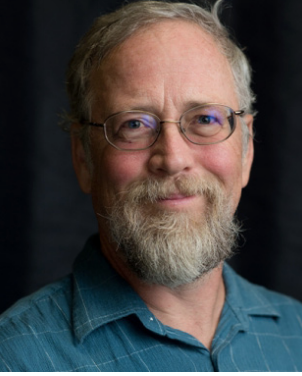By: Kate Rogers, News Editor
Dr. Robert Sanford, the Chair of the Environmental Science & Policy Department at USM, was nominated and chosen by Governor Janet Mills for the Maine Board of Environmental Protection in July of this year. He hopes to promote a focus on research and environmental facts over opinions in his time on the board.
The Board of Environmental Protection is made up of seven volunteer citizens from different parts of Maine who assist in bringing public participation in decisions regarding environmental laws in the state. They deal with issues like environmental permits, environmental violations, lists of dangerous substances, etc. All the deliberations of the board are public and broadcasted. There is no part of the decision making process that is not shared. “It’s a check on the system, make sure things are fair,” Sanford said.
According to Sanford, the board is “a quasi-judicial system.” They have attorneys come to present cases, and the board acts as a jury. “We don’t have opinions because we have to be the fact-finders,” Sanford said. “If you come in with an agenda, it’s not a good thing.”
With all the projects that go before the board, Sanford said that the more research is done, the better. Good projects will reveal themselves to be good the more research is done, and research done on bad projects can reveal how to make them better. Every project is going to change the environment somehow and the board’s goal is to decide if the outcome is worth the change, according to Sanford. “It meets the needs of the public without compromising the environment.”
The importance of recognizing and researching the facts of environmental change is something that Sanford aims to bring to all of his administrative and educational positions. He pointed out that America has the largest percentage of people in the world who don’t believe in climate change.
One of the biggest problems with climate change awareness, according to Sanford, is that people don’t know the early signs of climate change. They wait until the ecosystems physically change. By then, it’s often too late.
One of the first changes is with disease, because insect populations that carry the diseases are growing and changing. This is why diseases like malaria and Eastern equine encephalitis are becoming problems, and why vaccines are so important, according to Sanford.
“These aren’t political issues, they’re facts … we all have to unite to respond to that,” Sanford said.
According to Sanford; the administration before Governor Mills’ gave the Board less authority, but now they are able to make more meaningful change. Governor Mills announced to world leaders at the UN Summit that Maine would become carbon neutral by 2045, according to the Portland Press Herald. There are many projects in the works to help Maine deal with the new environment. “The old ways of doing things aren’t going to work anymore,” Sanford said.

